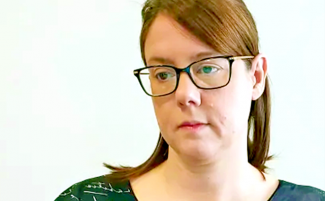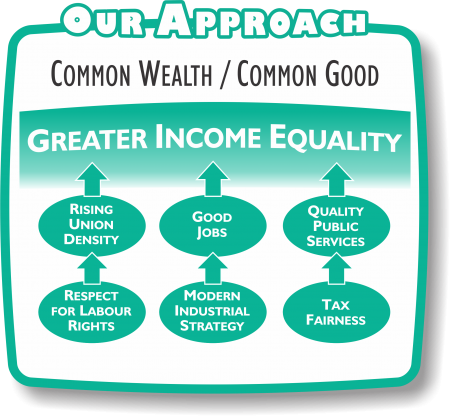PILING IT ON
Banks double down on interest charges in return for mortgage ‘relief’

Amanda Merle had no option but to pay interest on deferred interest
AMANDA MERLE THOUGHT SHE HAD LUCKED OUT. Her bank was going to let her defer her mortgage payments. When she read the fine print she didn’t feel so lucky.
What the CIBC (Canadian Imperial Bank of Commerce) was offering had a big catch: the Merles could defer their mortgage payment all right, but the interest due on the deferred payment(s) would be added on to their outstanding balance. The bottom line was: Amanda and her husband would have to pay interest on the uncollected interest.
The Merle’s would wind up paying an additional $7,400 to CIBC in return for four months worth of deferrals.
Just a PR stunt
“It is a PR stunt, in my view,” said Amanda. “The way they are touting the deferrals like they are our heroes in some way, all the while ‘helping’ us, as a country, into heaps more personal—and fabricated—debt.”
All six big banks have similar programs to defer mortgage payments for up to six months for people suffering financially due to COVID-19.
According to the Canadian Bankers Association (CBA), 600,000 Canadians have applied to their banks for deferred mortgages or to skip a payment.
Sidra Liaqat of Calgary is a self-employed health care aide who is now out of work due to the pandemic. She has reluctantly decided to defer payments on her RBC (Royal Bank of Canada) mortgage for six months. It will cost her an extra $5,300 in interest charged on the deferred principal and interest.
“Basically, it’s just the bank profiting off this emergency,” said Liaqat, who says she will be struggling to make ends meet. “I don’t think it’s fair. It’s not right. And I think something should be done about that.”
The federal government and the Bank of Canada said they’ll be injecting at least $150 billion into Canadian banks and mortgage lenders to ensure they have the cash available to keep lending by purchasing insured mortgage pools through the CMHC.
‘Banks not going to lose a dollar’
“The mortgage deferrals are just piling more debt onto people later. So the banks are not really going to lose a dollar,” says Duff Conacher of Democracy Watch.
“And really what should be happening instead is that people’s loan payments should just be stopped now—and the banks could afford to do it.”
Conacher points out that Canada’s big six banks together earned $46 billion in profits last year — the tenth year in a row their profits have gone up.
Conacher calls that “excessive,” and says it’s the highest of anywhere in the world.
“It feels greedy,” said Amanda. “We need to be focusing on getting everyone through this together. And it feels like the banks are flying in the face of that.”
Amanda says she tried for three weeks to speak to someone at CIBC about deferring her mortgage. She eventually gave up and filled out the online form. The only option Amanda had was to accept the CIBC terms and agree to pay interest on interest.
Deferred mortgages ‘last resort’
Meantime, personal finance experts warn Canadians to only apply for a mortgage deferral once all emergency funds and government programs have been exhausted.
“That would be your last resort,” says Scott Hannah, president and CEO of the Vancouver-based Credit Counselling Society. Hannah calculates that deferring payments could add an additional six months to a year to the life of a mortgage.
Amanda Merle says that the terms of the deferrals fall far short of what is needed. “I think some creative out-of-the-box thinking is required, and I would just sort of beseech the banks to do that.”
- 30 -













Add new comment